Within the past two weeks, the price of natural gas has nearly doubled in Europe, signaling Russian moves to put pressure on Europe, NATO, and Ukraine.
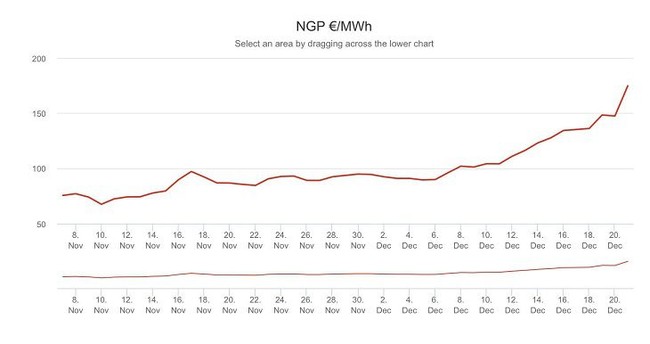
Taken together with a few other factors — that Russian troops are amassing on the Ukrainian border, hints at “Ukrainian provocation” from within Russian media sources, and whispers of next week’s impending talks between the US and Russia — all signs point to Russia setting up a soft coup in Ukraine.
The increased price of natural gas in Russia comes not from a normal winter spike in energy demand and consumption, as this graph shows.
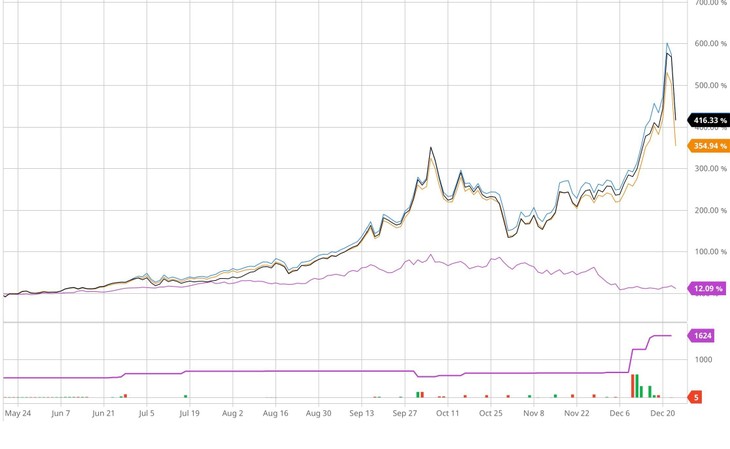
Source: barchart.com, Nymex, and ICE
In fact, it exceeds the price fluctuation of gas prices in the US several times. The price spike goes hand in hand with not only a reduction in natural gas supply to Europe but pulling back supplies from European depots back towards Russia. If prolonged, this could be devastating to both Eastern and Central European countries that rely on Russia for more than 75% of their natural gas supply, as well as to NATO countries like Germany.
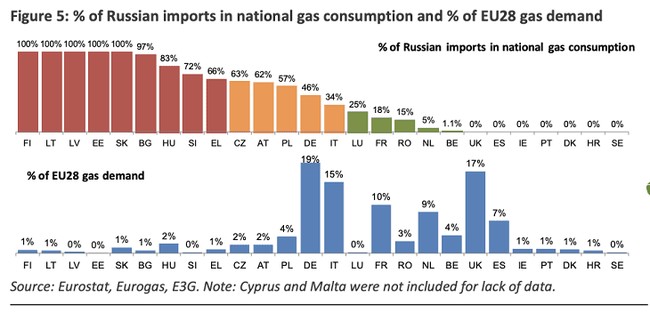
% dependence and % demand, respectively, on Russian natural gas by European countries. (Credit: Europeangashub.com)The latter — with their significant reduction in independent production, coal utilization, and its turn away from nuclear power — have the highest demand for natural gas from Russia, though it accounts for only around half of their imports. The pressure is mounting on European countries, and their allies this side of the Atlantic, to acquiesce in a potential Russian move to turn Ukraine once again towards Moscow, be it by force or by applications of “soft power” and “direct measures.”
Using their natural gas pipelines and incredible leverages on supply into Europe has been a defining card in Russia’s tactics of international political pressure, and almost always, it has been successful. In 2007, Russia and Ukraine argued over a debt of approximately $1.5 billion, but as soon as Russia shut off the gas supply, Ukraine bowed to the pressure, paying much of the demanded sum. The same argument over the debt was raised in 2009, and once again, Russia shut off the supply. This affected not only Ukraine, but Hungary, the Czech Republic, and many European countries, and only ended once the IMF and World Bank loaned Ukraine $1.7 billion to settle its debts. After annexing Crimea, Russia demands further payments from a broke Ukraine due to their own price spike. The same pattern repeats: Russia cuts off the gas, Ukraine loses all support and is forced to acquiesce, along with a silent Europe, to the Kremlin’s demands. This cycle has repeated multiple times in the last couple of decades.
What is clear is that Russia is once again wielding its supply of natural gas as a political tool – and it stands to reason that this is likely to do with Ukraine. What is unclear for now is how Russia intends to use this pressure to its advantage. It is possible that they wish to negotiate with NATO and the US to ignore the aggressive military build-up along the border, as well as the added pressure Belarus is supplying, while they go full in and take Ukraine by force in a manner reminiscent of Crimea. Russia might opt against this course, however: military action is harder to ignore in the court of world opinion, it’s time-consuming, resource-intensive, and likely to result in instability that might prove hard to control for Russia.
It is more likely that Russia will push soft power tactics to achieve its fundamental objectives. Russia’s intention has never been to acquire Ukraine. Rather, the more pressing issue for Russia is to maintain a useful buffer zone between its Eastern border and Western-leaning NATO states, such as Germany. If Ukraine were to join NATO – something the Ukrainian government has been desperate to push – it would present a grave threat to Russia. Cutting gas supplies, isolating Ukraine from the West, making life increasingly difficult for the average Ukrainian, and keeping up conflicts and troops at the border all serve to sabotage the Orange Revolution that introduced democracy to Ukraine. This is a way to undermine the current Zelensky government, and place internal political pressure on Ukrainians to trust a more pro-Russian aligned party, such as Ukraina Nash Dim or Na Zhisn’ (the pro-Russian opposition parties), with the country’s leadership. With the weakness of other democratic nations and their failure to support their allies outside of Ukraine – the West’s impotence in the face of China taking Hong Kong, or the US’s inability to protect Afghanistan from the Taliban – as well as in the Ukrainian government, it might now not take much for the Ukrainian people to consider anyone who trusts the West as fools, including their own elected officials.
With a US administration that has been unable to assert power against Putin and Germany’s abandonment of nuclear power, the West’s reliance on Russia has been increasing. Russia is setting itself up to use its tried and tested strategy to get what it wants. And the West is likely to give in once again – arguing that if that meant the end to 16 years of democracy in Ukraine, then so be it.
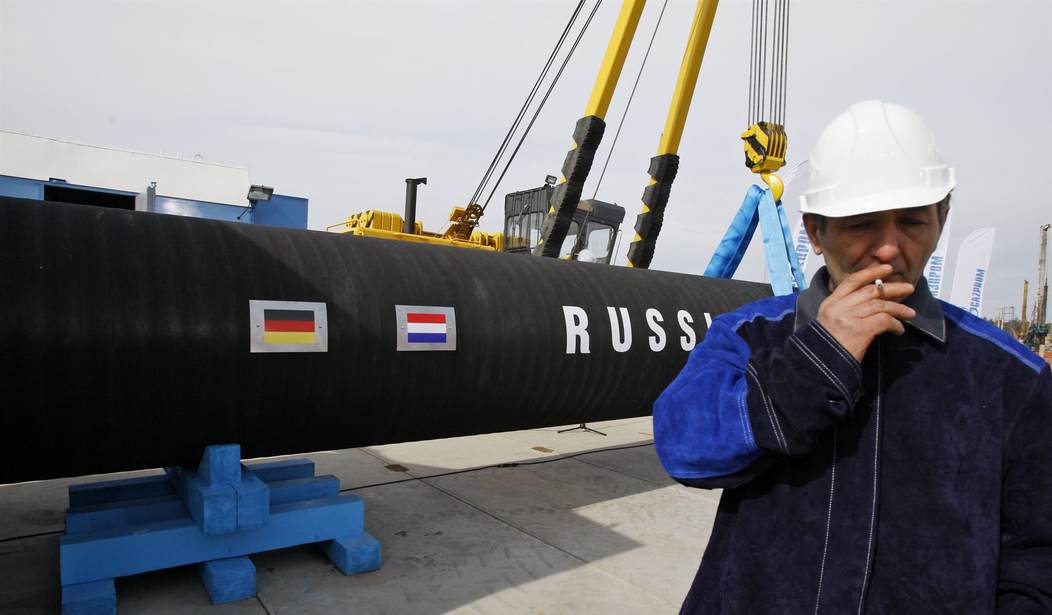









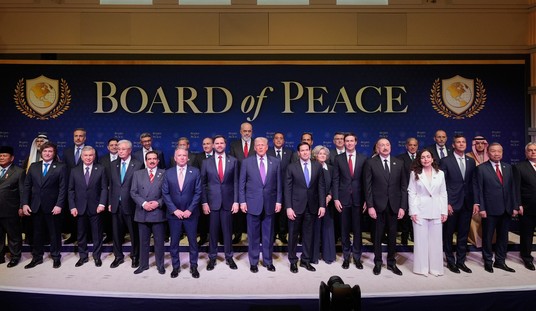


Join the conversation as a VIP Member